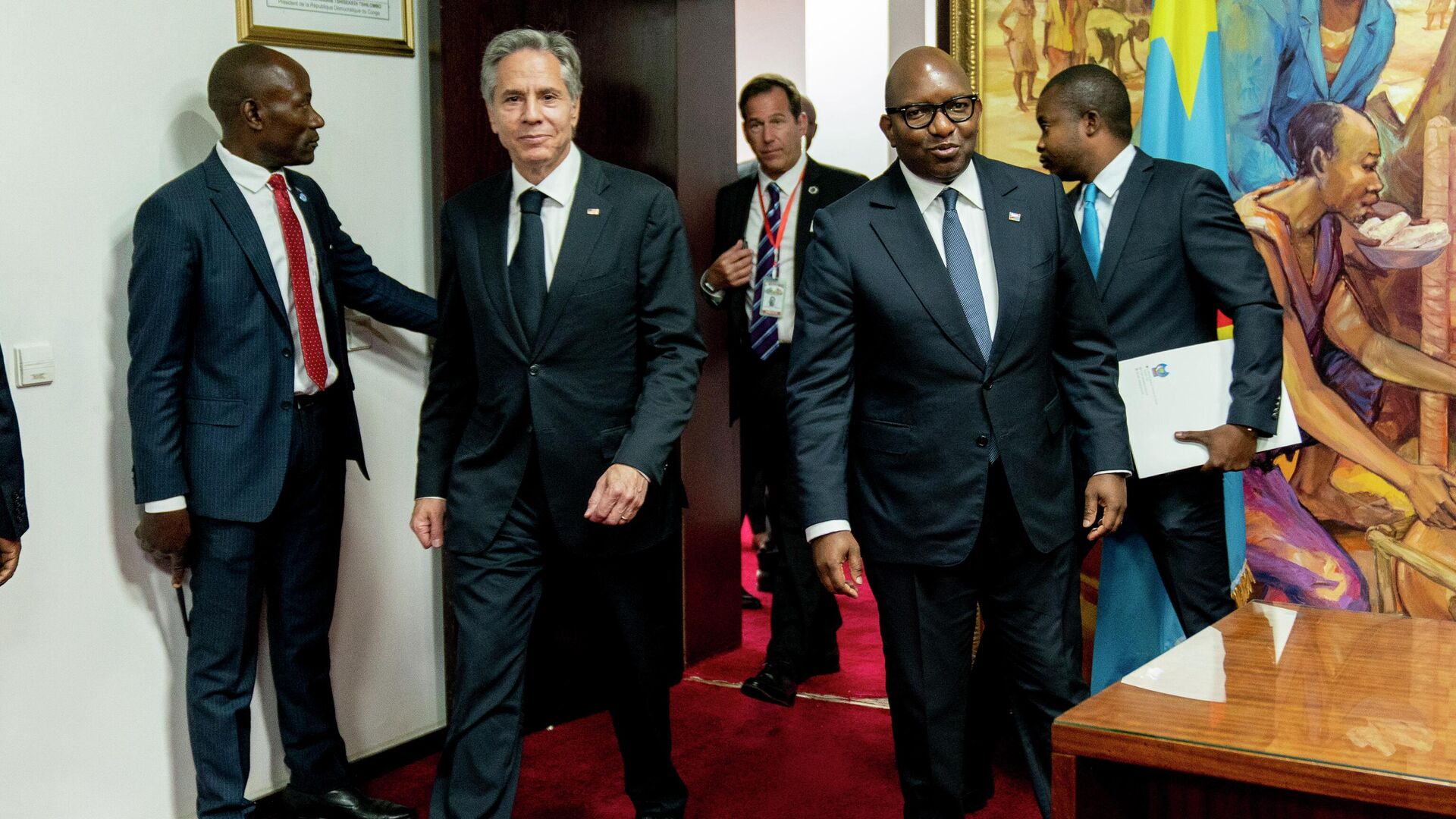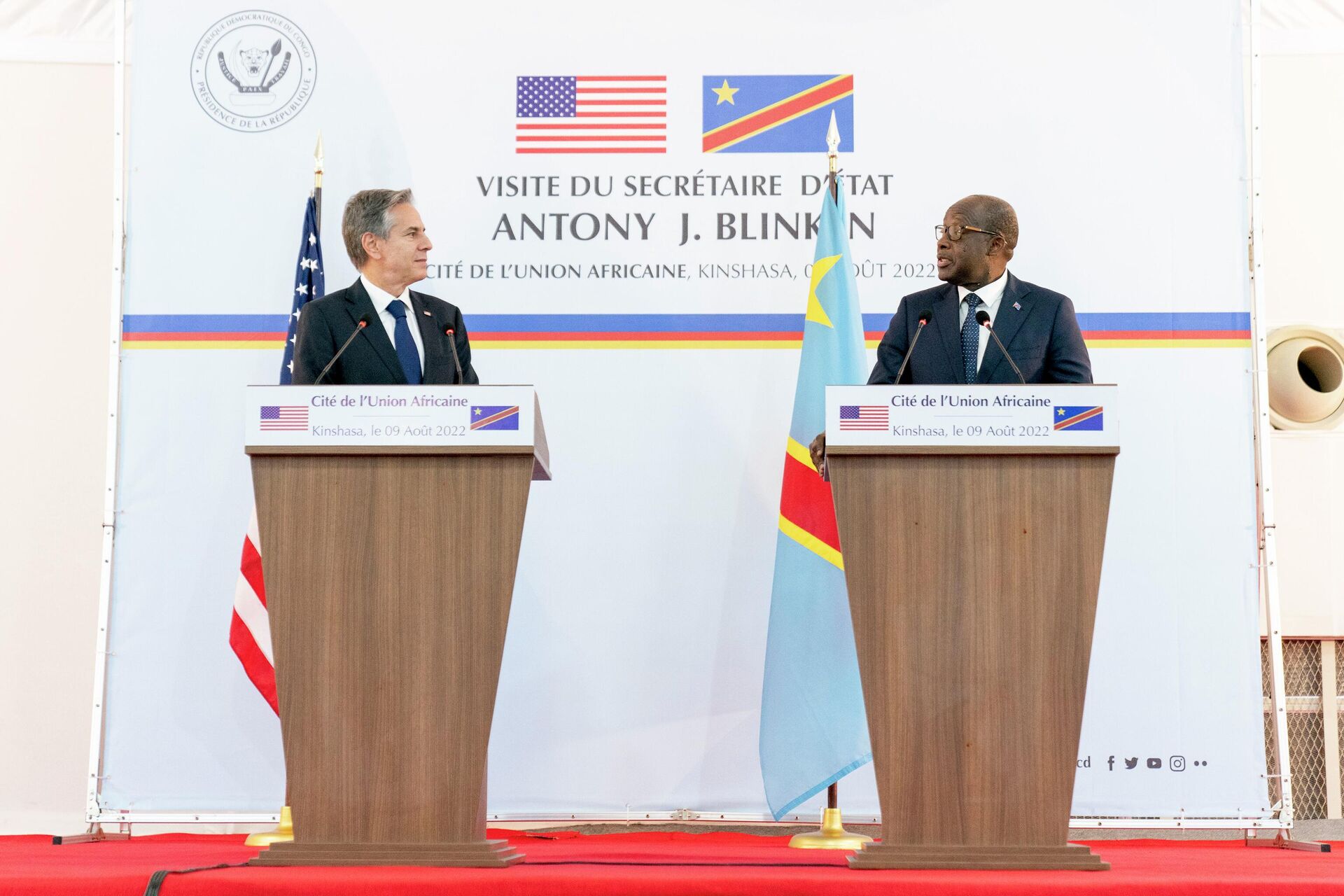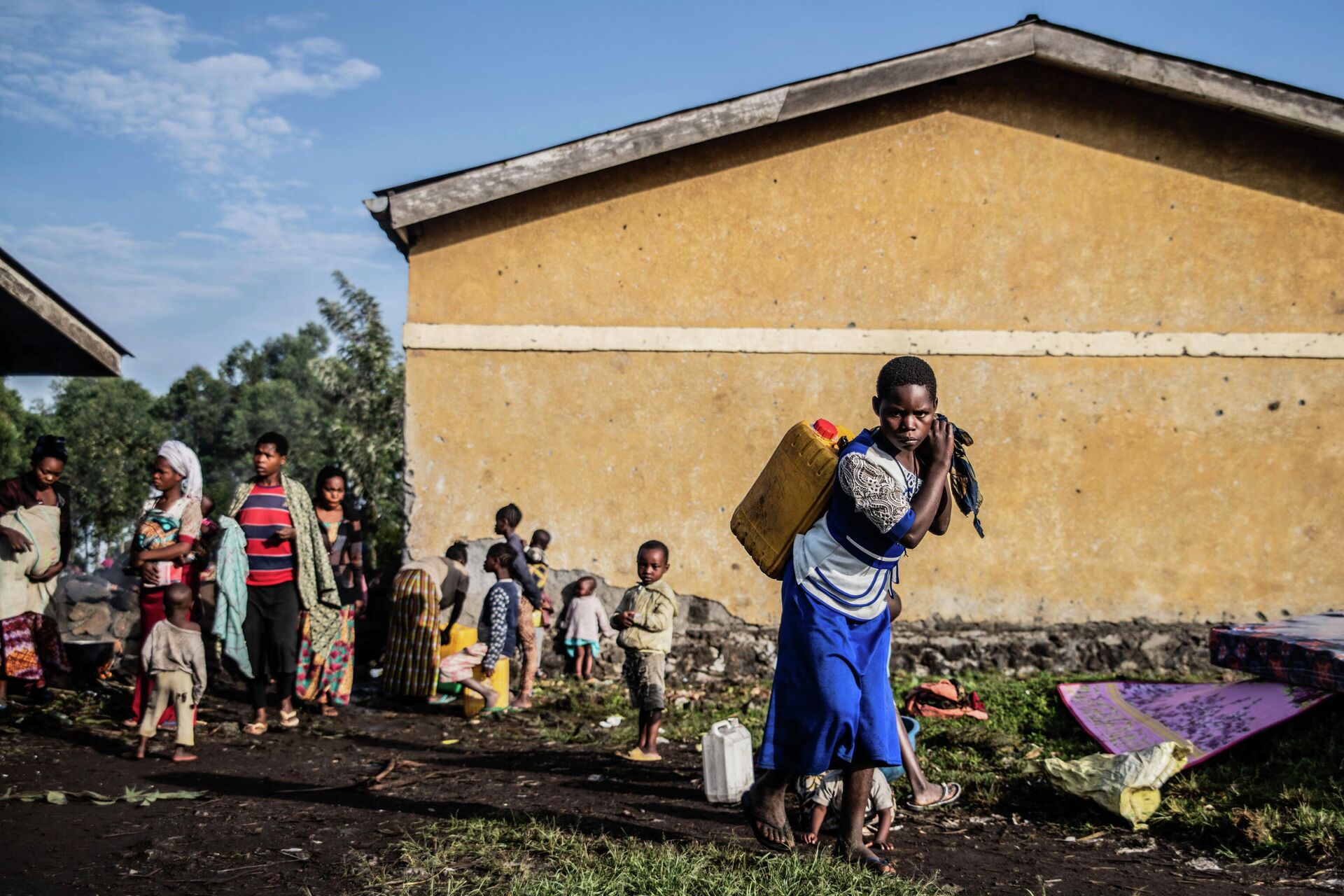Rwandan Academics Urge Blinken to Take ‘Holistic Approach’ to Congo on Africa Tour
18:48 GMT 10.08.2022 (Updated: 11:10 GMT 24.11.2022)

© AP Photo / Andrew Harnik
Subscribe
US Secretary of State Antony Blinken is due to visit Rwanda on Wednesday, where Kigali’s alleged backing of rebels in the DRC’s North Kivu province will be high on the agenda.
Blinken is scheduled to travel to Rwanda on Wednesday and meet President Paul Kagame. He told reporters on Tuesday that accusations of Rwanda backing the M23 rebels would be a “focus of the conversation.”
Previous to Rwanda, Blinken has visited the Democratic Republic of the Congo (DRC), where he continued to attempt to make the case that Washington would be a better partner to African nations than Russia or China, which have expanded their cooperation with nations on the continent in recent years, much to Europe’s chagrin.
According to Christophe Lutundula, who is both the DRC’s prime minister and foreign minister, he and Blinken exchanged ideas on their “common interests,” including “defense and security, focusing on security in the eastern side of the Congo, and military cooperations, finance and economy, precisely regarding the program of reform – economic reforms and foreign investment of the government, and the exploitation of natural resources industries. We also exchanged on environment, mining, and democracy.”

US Secretary of State Antony Blinken and Congo Foreign Minister Christophe Lutundula hold a news conference at Cite de l'OUA in Kinshasa, Congo, Tuesday, Aug. 9, 2022. Blinken is on a ten day trip to Cambodia, Philippines, South Africa, Congo, and Rwanda.
© AP Photo / Andrew Harnik
Reiterating his words a day prior in South Africa, Blinken told reporters at a Tuesday press conference in Kinshasa, DRC, that “too often African nations have been treated as instruments of other nations’ progress rather than as authors of their own progress. Resources have been exploited for other countries’ gains. People of the DRC know this all too well. That is not what the United States will do. We don’t want a one-sided transactional relationship. Instead, we want to work with you on shared priorities in pursuit of shared goals.”
Blinken also addressed what he called “credible reports that Rwanda has provided support to M23,” a predominantly Tutsi group in DRC’s North Kivu province. The DRC has accused Rwanda of backing the group as a proxy force to destabilize the region. Rwanda has returned the favor, accusing the DRC of backing the Democratic Forces for the Liberation of Rwanda (FDLR), a Hutu power group with connections to those who carried out the 1994 genocide of Rwandan Tutsis and Twa. There is evidence to support both claims, but both nations have denied the other’s accusations.
“We call on all parties in the region to stop any support or cooperation with M23 or, for that matter, any other non-state armed group. That is essential to actually bringing peace and security to the region. And we urge the groups themselves – M23, all non-state armed groups operating in the eastern DRC – to cease violence, to demilitarize, to pursue talks, as necessary, with the government,” Blinken added. The M23 has so far rejected a peace deal made by the two states in Luanda last month, saying that neither government speaks for them.
“[W]e’re certainly not turning a blind eye,” Blinken said of Rwanda’s alleged support for the M23. “I’m going to Rwanda tomorrow, and a big focus of this trip – but not just this trip, the work that we’re doing day in, day out – is to make sure the United States is doing everything it can to support the very important African-led mediation efforts, particularly processes that are being led by Kenya and Angola, to bring peace, security, and stability to the eastern Congo.”

People displaced by fighting between Congolese forces and M23 rebels gather north of Goma, Democratic Republic of Congo, Friday May 27, 2022. Congolese authorities have accused Rwandan forces of supporting armed groups in mineral-rich eastern Congo, where dozens of such groups are active. Rwanda has described allegations of supporting rebels in Congo as baseless.
© AP Photo / Moses Sawasawa
Ahead of his arrival, a group of Rwandan academics urged the US politician to consider the issue more widely instead of solely focusing on the M23.
“Refusing to take a holistic approach to the Congolese situation in all its complexity and with all its political, economic, and sociocultural ramifications would be counterproductive. We ask that the USA not ignore the existence of these hundreds of armed groups - in particular FDLR - that are responsible for widespread bloodshed in eastern Congo,” reads the letter, which was seen by Rwanda’s New Times daily.
“We strongly urge you to earnestly consider the fact that the Kinyarwanda-speaking Congolese are victims of exclusion, public incitement to hatred, and massacre. Blaming Rwanda for much of the violence on Congolese soil will not bring peace nor fix the Congolese social-economic crisis that has existed since the Mobutu presidency,” the academics wrote, referring to the country’s 1995 entry into eastern Congo - then called Zaire - in pursuit of Hutu groups responsible for the genocide of Rwandan Tutsis a year prior. The operation set in motion the overthrow of Mobutu, the fall of Zaire and foundation of the DRC, and the catastrophic Congo Wars.
Congolese President Felix Tshisekede has also been criticized by prominent Congolese figures like Nobel laureate Denis Mukwege, who said that his foreign policy “leads us objectively towards a prolongation and aggravation of instability.”

